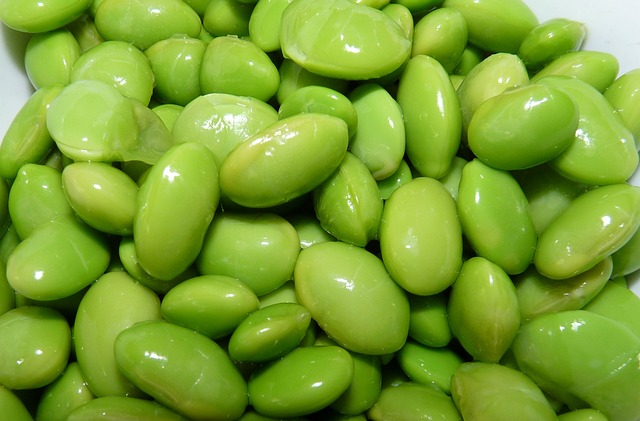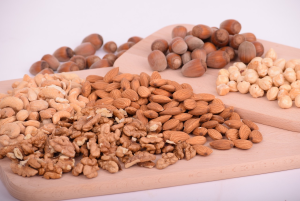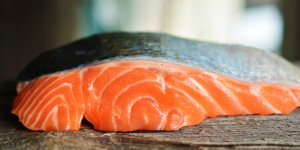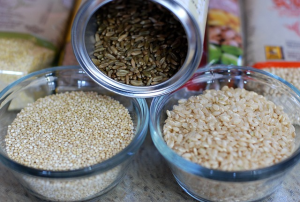Dietitians’ Top 5 Foods To Add To Your Basket

Good health is intertwined with a healthy diet. This is because a healthy diet consists of all the essential nutrients such as proteins, carbohydrates, minerals, fatty oils, and vitamins that offer the body nutrition. Sufficient nutrition guarantees your body’s safety from diseases and infections.
The guidance of a dietitian is crucial in realizing the increased benefits of various foods to your health. A dietitian specializes in evaluating an individual’s nutritional and health requirements to create a healthy eating plan that aims at enhancing the individual’s health.
Also, they periodically review their provided nutritional regimens and outcomes to make the required changes for maximum gains.
This post will examine the top five foods dietitians recommend adding to your baskets.
Whether you want to maintain your health for sports activities or avoid certain diseases early, these meals have all the necessary nutritional elements. So, let’s get started!
1. Soy
Soy is one of the top foods a dietitian can recommend adding to your basket. It is classified under the legume family and is rich in nutrients offering diverse health benefits.
The health benefits of consuming soy are enhancing cardiovascular health, lowering blood pressure, and promoting bone health. Soy can achieve all these as it has high isoflavone content and is a reliable fiber, potassium, calcium, vitamins, and high-quality protein source.
Additionally, soy is used as the primary component in producing various products. The by-products of soy include soy milk, tofu, soy sauce, and edamame. Some of these products are cooked as a whole meal, like tofu, whereas others, like soy sauce, are added to meals such as vegetables and soups and can also act as a salt substitute.
Since soy provides various alternatives, it is easier for a dietitian to integrate it into your diet.
Moreover, soy is useful for those who seek to stick to a plant-based diet, as it can also be used as an alternative to meat and dairy. Also, most soy is produced sustainably, thus a suitable diet option for those who value the environment and ethical production.
For more information about soy benefits, refer to U.S. Soy latest article and enjoy adding soy to your daily diet.
2. Frozen Vegetables
Frozen vegetables are vegetables that have had their temperatures decreased and maintained below their freezing points for storage and transportation. Most people think that freezing reduces the nutritional composition of vegetables, but that is false. Like fresh ones, frozen vegetables are packed with nutrients like antioxidants, vitamins, and fibers, thus making them the perfect recommendation to include in your basket.
Some of the supermarkets’ most popular frozen vegetables are broccoli, spinach, peas, and cauliflower. They are sometimes packaged separately or as a mixture, thus the availability of choices. Also, they are mostly cheaper than the fresh ones and are available even when the fresh ones are out of season due to their long shelf-life.
3. Nuts

Another exceptional food a dietitian can advise you to add to your basket is nuts.
Nuts make a tasty and protein-rich snack when added to your diet. They are an excellent source of nutrients like protein, iron, zinc, calcium, fiber, and omega-3 fatty acid.
Due to this exceptional nutritional texture, incorporating nuts into your diet helps educe bad cholesterol levels, promote easy digestion, and decrease the chances of overeating. Thus, enjoying a handful of nuts will benefit your weight, heart, and ability to prevent chronic illnesses, among many other things.
You can enhance your nut consumption by getting high-quality nut butter that has little to no added sugar and salt. After that, you can include them in your meals, drinks, or snacks, such as oats and smoothies.
This is easily achievable today as a wide variety of nut butter like pistachio, peanut, cashew, almond, and walnut are readily accessible in most stores.
4. Fatty Fish

With fatty fish comes endless nutritional value to your diet. They are a great source of omega-3 fatty acids, thus an ideal meal for dietitians to include in their basket. Fatty fish is packed with two essential omega-3 fatty acids that cannot be produced by your body but can be acquired from what you consume. These fats are essential in reducing inflammation and keeping your heart and brain healthy.
Examples of fatty fish high in omega-3 fatty acids are salmon, herring, anchovies, and mackerel. Incorporating any of these fatty fish in your diet at least once or twice a week can guarantee you nutritional advantages.
5. Whole Grains
If you frequently consume refined grains, such as white bread or pasta, consider switching them out for whole-grain substitutes to improve your diet’s nutritional value.

Whole grains are simply grains with all three components present. These three components are; the bran, the outer nutrient-rich layer; the germ, the seed’s nutrient-rich embryo; and the endosperm, which is rich in starchy carbohydrates.
Some whole-grain foods are millet, whole barley, brown rice, corn, and oats. Consuming whole grains rather than processed grain has been shown to have numerous health benefits.
They aid in weight management, digestion, and reducing risks of heart disease, type 2 diabetes, and cancer. This is because they are high in iron, magnesium, manganese, phosphorus, B vitamins, and dietary fiber, the essential nutrients associated with health benefits.
Conclusion
Incorporating various nutrient-dense foods is essential while creating a healthy and balanced diet. You can take steps towards promoting your overall health by adding soy products, frozen vegetables, nuts, fatty fish, and whole grains to your diet.
These foods offer a wide range of antioxidants, vitamins, minerals, and healthy fats, all essential for promoting well-being. So, whenever possible, go for fresh and less processed foods and enjoy the culinary alternatives these wholesome components offer.


